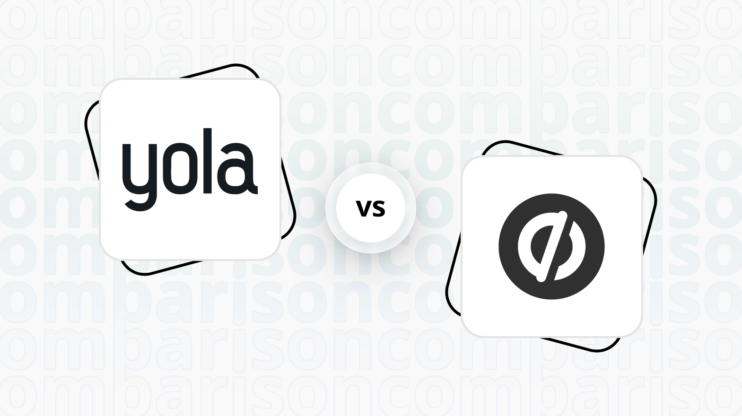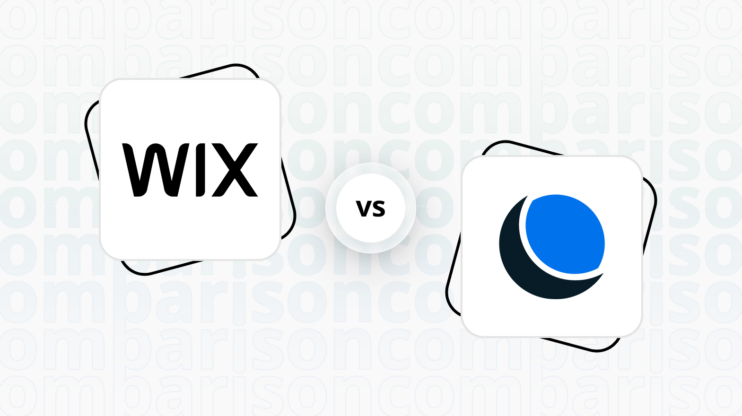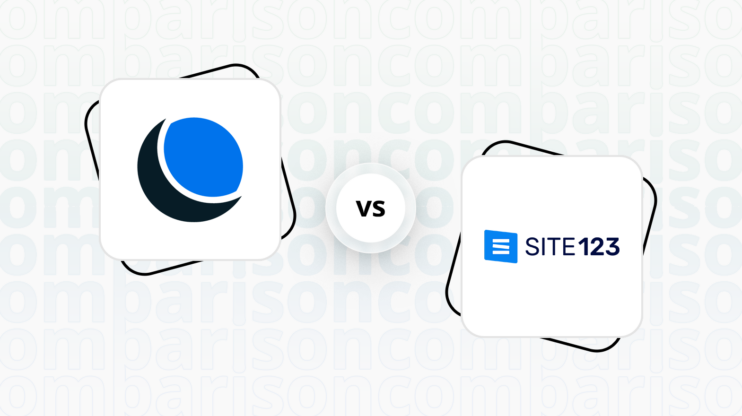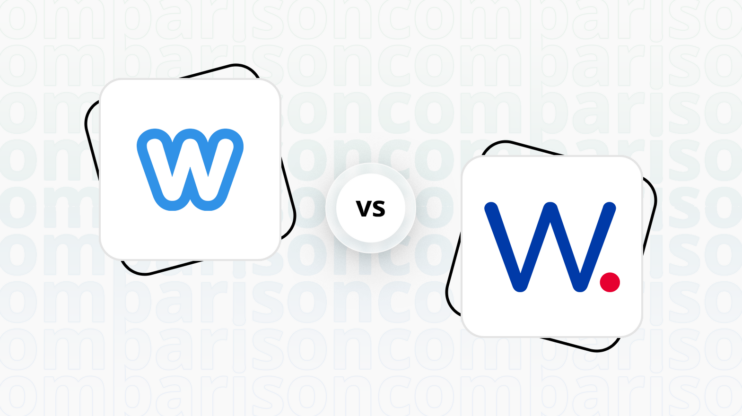Final verdict
WordPress and Web.com cater to different user needs with WordPress leading in flexibility and Web.com in user-friendliness.
-
WordPress (Overall Grade: 7.1/10)
excels with its open-source flexibility, extensive customization through themes and plugins, and strong community support. It’s ideal for users ranging from bloggers to businesses seeking a platform with deep customization options. Despite its steeper learning curve and security considerations that require active management, WordPress’s versatility and extensive ecosystem make it a powerful choice for those willing to invest time into building and managing their website. -
Web.com (Overall Grade: 5.8/10)
offers a more streamlined website building experience, focusing on ease of use with its drag-and-drop editor and integrated solutions for small businesses. While it may not match WordPress in terms of customization and plugin variety, Web.com’s built-in features and customer support make it a viable option for users looking for a simpler, more guided approach to website creation.

|

|
|
|---|---|---|
|
Design functionalities & templates |
9.0 |
6.4 |
|
Ease of use |
7.2 |
6.4 |
|
Ecommerce |
8.4 |
6.3 |
|
Website Editors |
8.5 |
6.6 |
|
Product testing options |
8.1 |
0.2 |
|
Price |
5.9 |
7.4 |
|
Hosting quality |
0 |
5.9 |
|
Website speed optimization |
6.5 |
5.8 |
|
Plugins/extensions and integrations |
8.8 |
6.7 |
|
Marketing features |
8.0 |
7.0 |
|
Customer support |
5.0 |
7.3 |
|
Website security |
6.7 |
7.6 |
|
AI capabilities |
6.1 |
7.3 |
|
User management |
8.8 |
5.2 |
| Overall |
7.1 |
5.8 |
Best for ecommerce
 8.4
8.4
 6.3
6.3
Verdict
: WordPress is superior for users seeking extensive ecommerce functionalities and customization through plugins like WooCommerce. Web.com caters to those looking for an easier, more straightforward setup but lacks the depth of features and flexibility offered by WordPress.
-
WordPress
: Offers a robust ecommerce solution with WooCommerce, supporting a wide range of payment gateways, advanced analytics, and SEO tools. Its open-source nature allows for extensive customization, making it ideal for businesses with specific needs. -
Web.com
: Provides basic ecommerce features with an emphasis on simplicity and ease of use. While it supports essential functions like product listing and payment gateway integration, it offers less in terms of customization and advanced features compared to WordPress.
Best for informational & business websites
 9.2
9.2
 6.5
6.5
Verdict
: WordPress is the superior choice for informational and business websites, offering unparalleled customization and a vast ecosystem of themes and plugins. Web.com, while user-friendly, falls short in comparison.
-
WordPress
: With a score of 9.2, WordPress stands out for its flexibility, extensive customization options, and a vast array of themes and plugins. It’s ideal for users looking to create content-rich, highly customized sites. -
Web.com
: Scoring 6.5, Web.com offers a straightforward, no-coding-needed approach with a focus on mobile responsiveness. It’s suitable for those looking for an easier, more guided website creation experience but lacks the depth of customization and options available with WordPress.
Detailed comparison
Design functionalities & templates
Design FunctionalitiesRepresents how well each platform allows for creative design and customization of websites.Score Components:
- Template Variety (30%): Range and quality of design templates.
- Customization (30%): Flexibility and options for design alterations.
- User Interface (20%): Ease and intuitiveness of the design process.
- Responsiveness (10%): Adaptability to different devices and screen sizes.
- Innovation (10%): Unique design features and tools.
 9.0
9.0
 6.4
6.4
🏆
Winner: WordPress.
If you’re looking for a platform that offers more creative control, a wide array of design features, and extensive customization options, WordPress is the preferred choice.
WordPress offers an extensive variety of templates and designs, catering to a wide range of website types beyond just blogs or ecommerce. Its open-source nature allows for high customization and creative freedom, appealing to diverse user needs. While WordPress itself doesn’t sell premium templates, numerous third-party theme shops offer sophisticated and specialized design choices, expanding the possibilities for users.
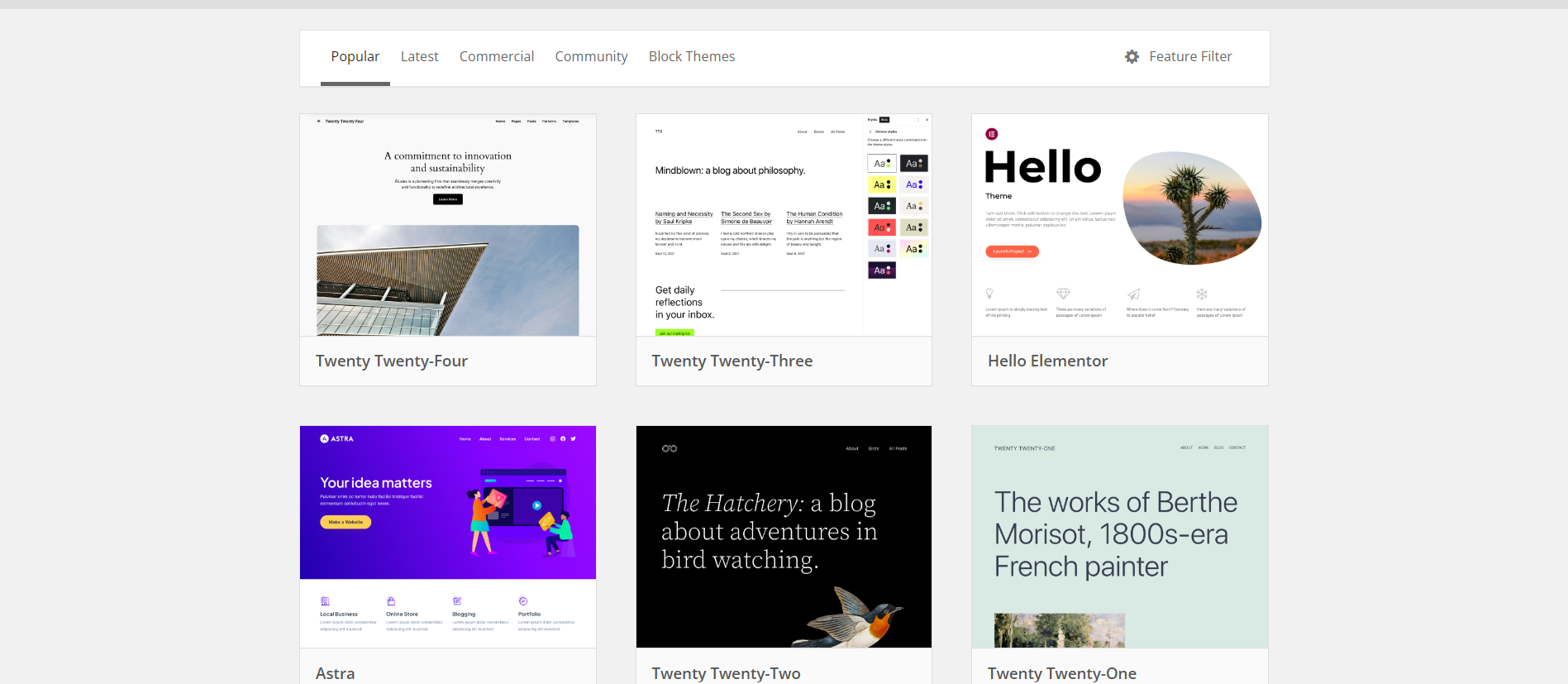
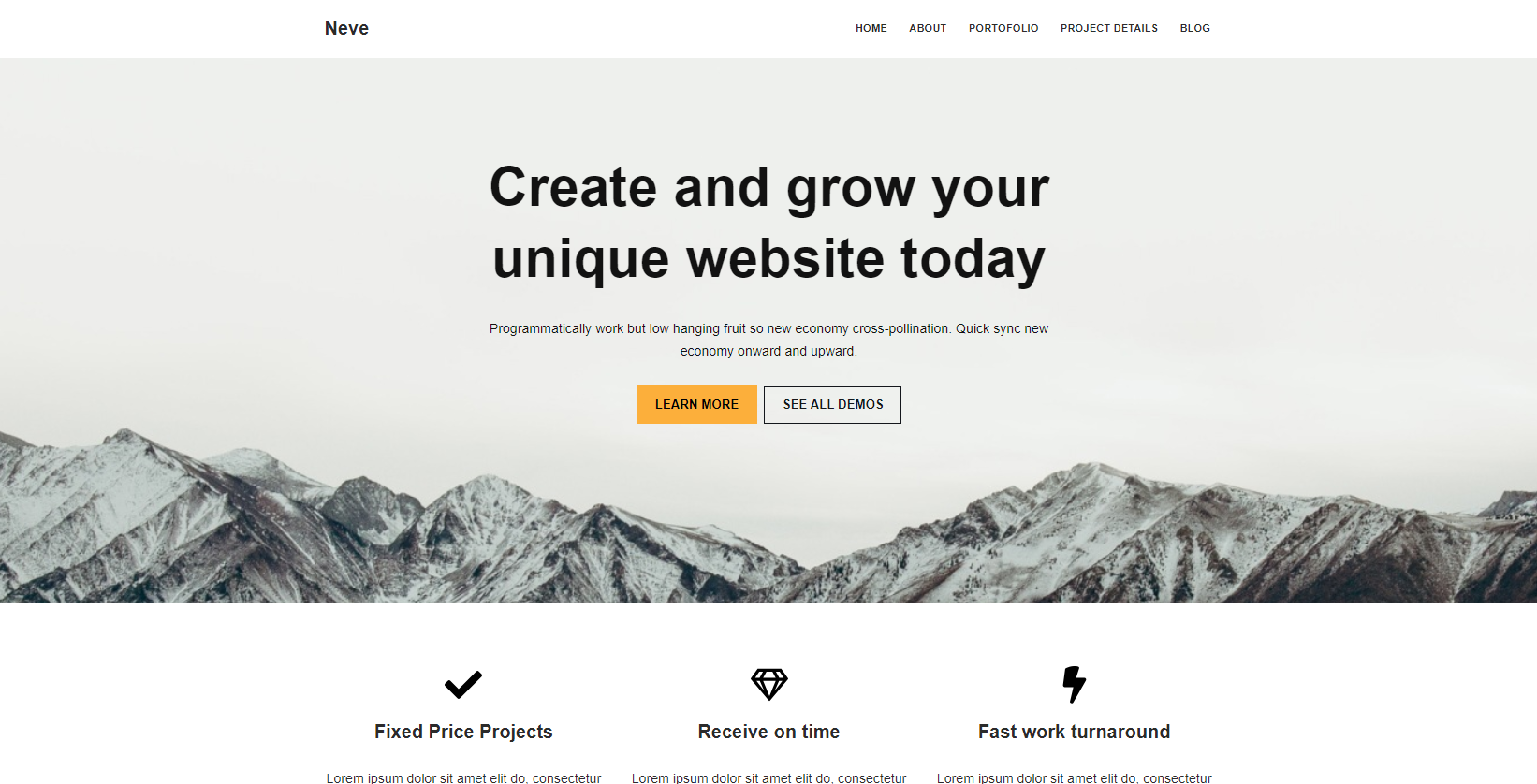
Compared to WordPress, Web.com offers over 100 website templates designed to cater to a broad spectrum of industries and personalization needs. These templates are structured to be straightforward in customization, allowing users to easily adapt their chosen designs to suit their unique brand identity through the platform’s editor. However, while the platform facilitates template customization and offers numerous pre-made layouts, it may not provide the most advanced features for all customization desires.
Get a head start on website creation with AI
Create a custom website tailored to your business needs 10X faster with 10Web AI Website Builder!
Ease of use
Ease of useReflects the platform’s overall user-friendliness.Score
Components:
- Learning curve (40%): Quickness and ease of getting started.
- Interface design (30%): Simplicity and intuitiveness of layout.
- User guidance (20%): Quality of tutorials and support.
- Flexibility (10%): Adaptability to various user skills.
 7.2
7.2
 6.4
6.4
🏆 Winner: WordPress
. Scoring 7.2, WordPress offers great flexibility and power, making it suitable for a wide range of users. Web.com, with a score of 6.4, offers a range of templates and robust customization tools, but may not be the best fit for those seeking quick, simple website setup.
Learning Resources
🏆 Winner: WordPress
. WordPress is supported by a vast array of learning resources, known for both their availability and quality. These include detailed documentation, community forums, online tutorials, and courses offered by both WordPress and third-party providers. Web.com offers a range of AI-powered tools and a comprehensive knowledge base, but lacks a large community of users.
For ecommerce
EcommerceMeasures the platform’s effectiveness in supporting online business activities.Score Components:
- Ecommerce themes and templates (20%): Variety and design of templates.
- Product management (25%): Ease of managing and organizing products.
- Payment options (25%): Variety and convenience of payment methods.
- Ecommerce features (20%): Features for managing an ecommerce store.
- Integration (10%): Compatibility with external e-commerce tools and services.
 8.4
8.4
 6.3
6.3
WordPress, with its WooCommerce plugin, offers a robust ecommerce solution with features like multiple payment gateway support, abandoned cart recovery, ecommerce analytics, and SEO optimization tools. Web.com, on the other hand, provides a suite of ecommerce features including product listing, marketing features, shipping options, and payment gateways integration. However, it has been noted for its complex setup process and limited template variety.

|

|
|
|---|---|---|
|
Ecommerce themes and templates |
9.2 |
5.5 |
|
Product page customization |
9.0 |
6.0 |
|
Payment processing and commissions |
7.5 |
6.5 |
|
POS capabilities |
6.5 |
4.0 |
|
Payment gateways |
8.5 |
7.0 |
|
Product numbers |
7.0 |
5.0 |
|
Additional ecommerce features |
8.0 |
6.0 |
WordPress ecommerce features:
- WooCommerce Integration
- Multiple Payment Gateway Support
- Abandoned Cart Recovery
- Ecommerce Analytics
- SEO Optimization Tools
- Extensive Plugin Ecosystem
Web.com ecommerce features:
- Product listing
- Marketing Features
- Shipping options
- Payment Gateways integration
Ecommerce themes & templates
WordPress offers hundreds to potentially thousands of ecommerce and WooCommerce specific themes and templates, both free and premium. Web.com provides around 15 ecommerce templates designed to help businesses quickly launch and customize their online stores. These templates are compatible with Web.com’s website builder, facilitating straightforward customization and integration for digital storefronts.
Product page customization
WooCommerce on WordPress offers extensive customization for eCommerce product pages, balancing plugins, page builders, and custom coding. Web.com’s website builder offers a suite of tools for e-commerce stores, including product category management for organizing inventory and improving navigation, and product listing features for adding detailed product information and images.
Payment processing
WordPress doesn’t handle payments directly but offers plugin options for payment processing. Popular gateways include PayPal, Stripe, Authorize.Net, and Square. Web.com supports popular payment gateways like PayPal, Stripe, and all major debit and credit cards, ensuring a wide array of payment options for customers. Details on transaction commissions, particularly whether Web.com imposes additional fees on transactions processed through these gateways, were not clearly stated in the reviewed sources.
Website Editors
Website EditorsEvaluates the platforms’ website building and editing capabilities.Score Components:
- Customization tools (40%): Range and power of editing features.
- Editor usability (30%): User experience within the editor.
- Design flexibility (20%): Freedom in layout and design changes.
- Update and maintenance ease (10%): Simplicity of updating and maintaining the site.
 8.5
8.5
 6.6
6.6
🏆
Winner: WordPress
. WordPress, with a score of 8.5, offers a user-friendly interface with block-based editing, extensive styles customization, template management, page editing/creation, distraction-free modes, versatile saving options, and accessibility for users of varying skill levels. It also provides a WYSIWYG (What You See Is What You Get) interface, and changes can be applied globally, including Header and Footer templates. The editor also offers features like undo/redo, List View, Command Palette, and customization tools.
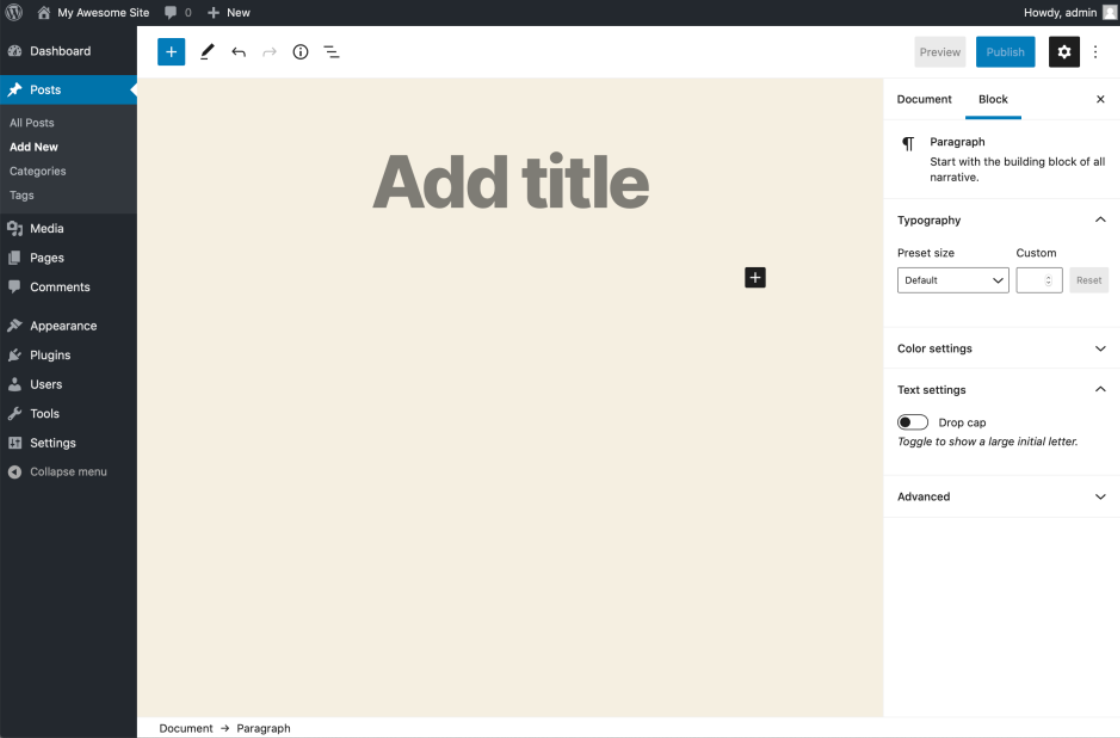
Web.com’s website builder, scoring 6.6, offers a user-friendly platform with a variety of templates and a drag-and-drop interface for easy customization. It supports basic e-commerce capabilities suitable for small businesses, alongside features like analytics, social media integration, and email services. However, for more advanced functionalities like promotional pop-ups, calendars, or comprehensive blogging tools, the platform may fall short unless users are willing to add custom code.
Mobile editor/app
 8.1
8.1
 0
0
🏆
Winner: WordPress
. WordPress offers a mobile editor app that allows users to manage their website on the go. You can create and edit posts, manage comments, schedule content, and analyze website traffic from your phone or tablet. While it offers convenience and basic functionality, it has some limitations compared to the web-based editor, including fewer advanced options, restricted code access, and limited design customization.
Web.com, on the other hand, does not have a dedicated mobile editor app, making WordPress the clear winner in this category.
In summary, WordPress receives a higher rating due to its mobile editor app, offering convenience and basic functionality, while Web.com lacks a dedicated mobile editor app.
Product testing options
Product Testing OptionsAssesses the options for trying out platform features before commitment.Score Components:
- Trial quality (40%): Extent and usefulness of the trial or free version.
- Feature accessibility (30%): How many features are available to test.
- Trial duration (20%): Length of the trial period.
- Ease of transition (10%): Smoothness of moving from trial to paid plans.
 8.1
8.1
 0.2
0.2
Overall Result
:
WordPress Wins
. WordPress scores 8.1 in product testing options, significantly higher than Web.com’s 0.2. WordPress, being an open-source CMS, allows users to use and test the platform for free. However, it does not offer a trial version or the possibility to test premium features. Web.com, on the other hand, does not offer any free or trial versions, and users cannot test any features before purchasing a plan. However, it does offer a 3-day money-back guarantee.

|

|
|
|---|---|---|
|
Free Plan |
Yes (open source software) |
No |
|
Trial Duration |
No | No |
|
Testing Premium Features |
No | Not possible before purchasing a plan |
|
Money Back Guarantee |
No payments required |
3-day money back guarantee |
Price
PriceLooks at the cost-effectiveness and value for money of each platform.Score Components:
- Plan value (40%): What each pricing tier offers.
- Transparency and clarity (30%): Clearness of pricing structures.
- Flexibility of plans (20%): Range of options to suit different budgets.
- Hidden costs (10%): Additional expenses not included in the plan.
 5.9
5.9
 7.4
7.4
Web.com offers a more straightforward pricing structure with clear plans and features, while WordPress is free but requires separate purchases for hosting, domain, and website builder subscriptions.

|

|
|
|---|---|---|
|
Free |
Free Plan ($0/month): WordPress is open source software that is free. WordPress does not provide hosting services; so, it is necessary to purchase a domain, web hosting, and website builder subscriptions separately. While WordPress lacks built-in ecommerce, plugins like WooCommerce offer a solution. WordPress offers an extensive variety of templates and designs. WordPress lacks a built-in AI-assisted builder, but its open-source nature allows for an ecosystem of plugins and themes incorporating AI for website building. |
No offering at this amount. |
|
$10-$20 |
No offering at this amount. |
Website ($19.99/month): AI-powered Website Builder. Free domain & domain privacy for 1 year. Professional email for 3 months. SSL Certificate for 1 month. 1 hour expert design support. Social & email marketing tools. Value for price: 6.5 |
|
$20-$30 |
No offering at this amount. |
Website + Marketing ($24.99/month): All features in the Website plan. Enhanced marketing tools. Appointment scheduling. Value for price: 7.0 |
|
$30+ |
No offering at this amount. |
eCommerce ($34.99/month): All features in the Website + Marketing plan. Online store with secure checkout. Sell on multiple marketplaces like Facebook, Instagram, Amazon, eBay, etc. Value for price: 8.5 |
location. As a result in rare cases the prices displayed here can differ from the ones you see on their
websites.
Hosting quality
Hosting
qualityExamines the reliability and performance of the hosting solutions.Score Components:
- Uptime (40%): Consistency and reliability of website availability.
- Speed (30%): Loading times and performance.
- Bandwidth and storage (20%): Sufficiency of resources provided.
- Data centers (10%): Quality and distribution of hosting infrastructure.
 0
0
 5.9
5.9
🏆
Winner: Web.com
Web.com offers shared hosting with unlimited storage and daily backups, while WordPress does not directly provide hosting services. However, Web.com does not provide uptime statistics or guarantees, and does not disclose the locations of its data centers. Despite these limitations, Web.com is given a higher hosting quality score due to its hosting services.

|

|
|
|---|---|---|
|
Do they offer hosting? |
No | Yes |
|
Data Centers: |
Depends on hosting provider | Not disclosed |
|
Type of hosting: |
Depends on hosting provider | Shared hosting |
|
Uptime: |
Depends on hosting provider | Not provided |
|
Uptime Guarantee: |
Depends on hosting provider | No |
Website Speed Optimization
Website Speed OptimizationEvaluates optimization of website loading timesScore Components:
- PageSpeed Score (30%): Google’s score indicating performance optimization.
- Loading Time (30%): The average time until a website is fully interactive.
- Mobile Optimization (15%): Optimization effectiveness for mobile devices.
- Resource Optimization (15%): Optimizing images, scripts, and other heavy resources.
- CDN Usage (10%): Use of CDN to enhance speed across geolocations.
 6.5
6.5
 5.8
5.8
🏆 Winner: WordPress
Both WordPress and Web.com understand the importance of website speed optimization, but WordPress takes the lead with its extensive resources and tools for improving website speed and performance.

|

|
|
|---|---|---|
|
Focus |
Extensive resources for optimization |
Mobile optimized design, Code minification |
|
Performance Tools |
Core Web Vitals, WP Rocket, Hummingbird |
Not specified |
|
Key Strategies |
No specific strategy, but extensive resources available |
Mobile Optimized design, Code Minification, Caching, Image Optimization |
|
Load Times |
Varies widely, dependent on optimization |
Varies depending on optimization and website complexity |
|
Page Speed Scores Range |
Scores vary; influenced by apps, images |
Not specified |
|
Core Web Vitals Improvement |
Extensive resources for CWV improvement |
No information provided |
WordPress, an open-source content management system, does not have a specific strategy for website speed optimization. However, it offers numerous learning resources about how to optimize your website. WordPress provides valuable resources for enhancing your website’s Core Web Vitals (CWV): analyze CWV, choose a reliable host, optimize images, minimize plugins, use lazy loading, and employ a CDN. Tools like Core Web Vitals, WP Rocket, Hummingbird are recommended, and AMP is considered for mobile speed. The load times and PageSpeed scores vary widely, influenced by apps, images, and the level of optimization.
Web.com, on the other hand, emphasizes mobile-optimized design, code minification, caching, and image optimization as its key strategies for website speed optimization. However, it does not provide any information on their Core Web Vitals improvements. The load times and PageSpeed scores vary depending on the level of optimization and website complexity.
Get a head start on website creation with AI
Create a custom website tailored to your business needs 10X faster with 10Web AI Website Builder!
Plugins and integrations
Plugins and integrationsMeasures the range and effectiveness of additional plugins and integrations.Score Components:
- Variety of options (40%): Range of available add-ons.
- Integration smoothness (30%): Ease of integrating plugins into the site.
- Quality of plugins (20%): Functionality and reliability of the options.
- Custom integration capabilities (10%): Support for custom or third-party integrations.
 8.8
8.8
 6.7
6.7
🏆 Winner: WordPress.
With a score of 8.8, WordPress leads the way with its extensive range of plugins and seamless integrations. It offers over 60,000 free plugins, making it a powerhouse for adding functionalities that scale with your business. Web.com, with a score of 6.7, offers a variety of plugins too, but WordPress’s breadth and depth give it the upper hand.
It is however worth mentioning that Web.com provides a suite of plugins and integrations for websites built on its platform, including features for email marketing, social media engagement, analytics, and eCommerce capabilities. Additionally, for those seeking more advanced functionality, Web.com offers WordPress hosting, which allows access to a wide range of WordPress plugins for further customization.
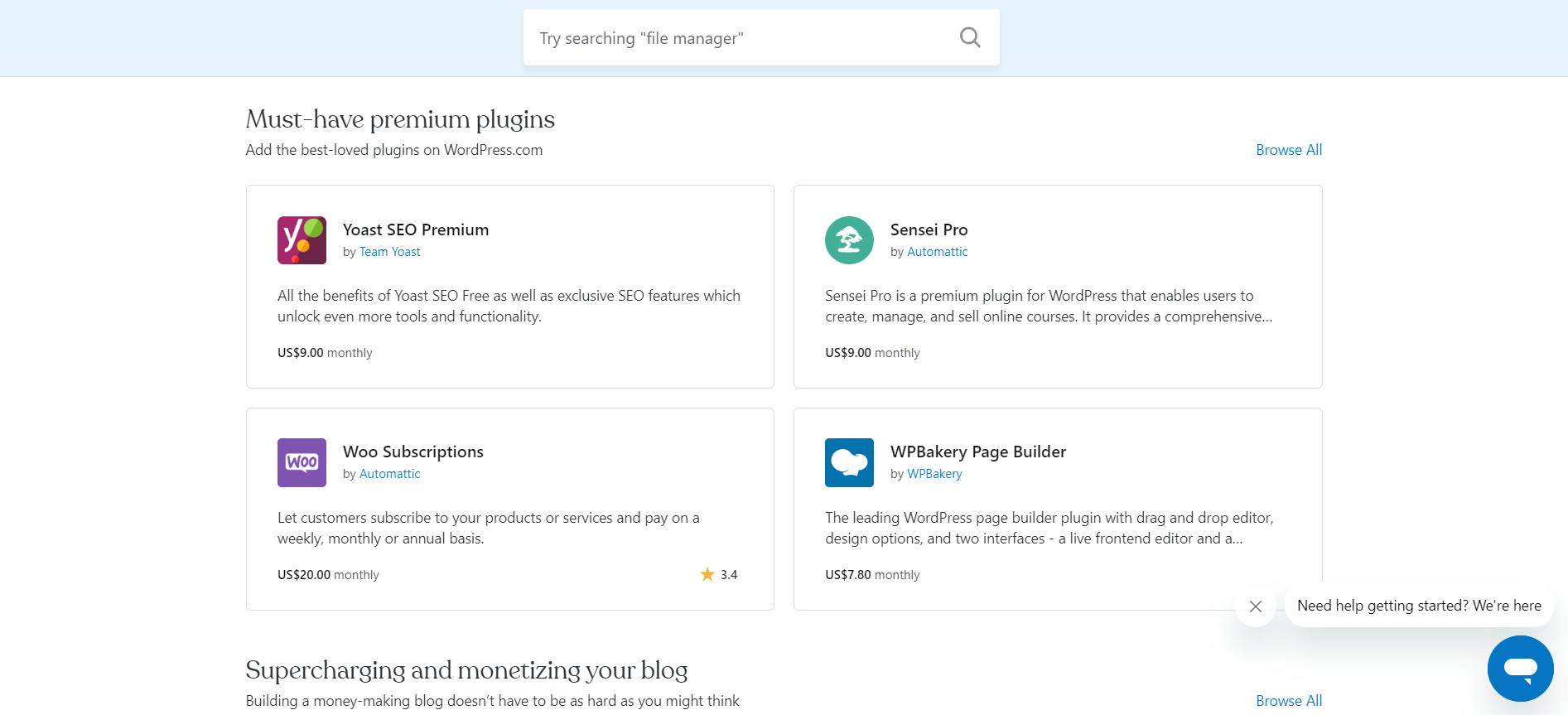
Marketing Features
Design FunctionalitiesRepresents how well each platform allows for creative design and customization of websites.Score Components:
- Template Variety (30%): Range and quality of design templates.
- Customization (30%): Flexibility and options for design alterations.
- User Interface (20%): Ease and intuitiveness of the design process.
- Responsiveness (10%): Adaptability to different devices and screen sizes.
- Innovation (10%): Unique design features and tools.
 8.0
8.0
 7.0
7.0
🏆
Overall Winner: WordPress
. WordPress stands out for its extensive customization options through plugins, making it suitable for a wide range of marketing strategies. Web.com, on the other hand, offers a more streamlined, integrated approach to marketing, with built-in tools for SEO, email marketing, and social media integration.

|

|
|
|---|---|---|
|
SEO Tools |
|
|
|
Email Marketing |
Via plugins |
|
|
Blogging |
|
|
|
Social Media Integration |
Via plugins |
|
|
Analytics and Reporting |
Via plugins |
Basic website analytics |
|
Ads and Promotions |
Via plugins |
Included in marketing and eCommerce packages |
Customer Support
Customer supportEvaluates the quality and availability of support options.Score Components:
- Response time (40%): Speed of support responses.
- Support quality (30%): Effectiveness and helpfulness of the support.
- Availability (20%): Range of support channels (phone, chat, email).
- Resource richness (10%): Quality of self-help and educational materials.
 5.0
5.0
 7.3
7.3
🏆 Winner: Web.com
. Web.com takes the lead in this category with a customer support score of 7.3, compared to WordPress’s score of 5.0. Web.com offers comprehensive customer support through various channels, including email, live chat, and 24/7 phone support. This ensures that users can find help whenever they need it, making it a reliable option for immediate support needs.
On the other hand, WordPress, being an open-source platform, lacks direct customer support. However, users can find assistance through community forums, the WordPress codex, hosting provider support, and plugin and theme support. Despite these resources, the lack of direct customer support results in a lower score for WordPress in this category.
Security
SecurityLooks at the platforms’ security measures and data protection.Score Components:
- Data protection (40%): Safeguards for user and customer data.
- SSL and encryption (30%): Implementation of secure connections.
- Compliance (20%): Adherence to industry security standards.
- Regular updates (10%): Frequency of security updates and patches.
 6.7
6.7
 7.6
7.6
🏆
Winner: Web.com
. Web.com offers a more comprehensive security package compared to WordPress. It provides a range of services focused on private data storage and protection, including website staging environments and secure email solutions. In terms of website security, Web.com partners with SiteLock Security to provide cloud-based security services that scan websites for malware and vulnerabilities, automatically remove malicious content, and address potential security risks.
On the other hand, WordPress’s approach to private data storage and protection can vary depending on the hosting provider. While it does offer numerous functionalities and resources to enhance website security, such as plugins for site backups, monitoring, malware scanning, user activity tracking, permission control, and spam protection, these features require manual setup and maintenance, which may not be ideal for all users.
AI Capabilities
AI capabilitiesMeasures the effectiveness of AI-driven features and tools.Score Components:
- Automation efficiency (40%): Impact of AI on streamlining processes.
- Personalization (30%): AI-driven customization for users or customers.
- AI-Assisted design (20%): Role of AI in website design and functionality.
- Data analysis (10%): Use of AI in interpreting user data and analytics.
 6.1
6.1
 7.3
7.3

|

|
|
|---|---|---|
|
AI Builder |
Lacks built-in AI builder, relies on plugins like AI Site Builder and Zita |
Built-in AI builder that generates websites based on user’s business goals |
|
AI Ecommerce Features |
Lacks built-in AI ecommerce features, relies on plugins for AI marketing, personalization, content management, and SEO analysis |
Built-in AI ecommerce features like personalized product recommendations, automated inventory management, customer service chatbots, and insightful data analysis tools |
|
AI Content Generation |
Lacks built-in AI content generation, relies on plugins like AI Engine and GetGenie |
Built-in AI Writer for versatile content creation in twelve languages |
|
Additional AI Features |
Wide range of AI powered plugins and tools |
Built-in AI features like AI Domain Generator and AI Logo Builder |
🏆 Winner: Web.com
. With a score of 7.3, Web.com’s built-in AI capabilities outshine WordPress’s plugin-dependent AI features. Web.com’s AI features are designed to simplify the website creation process and enhance the online shopping experience, making it a more user-friendly option for those without technical skills.
User Management
User ManagementAssesses the platforms’ capabilities in managing user roles, permissions, and accessibility.Score Components:
- Role Customization (40%): Flexibility in creating and defining user roles and
permissions. - Ease of Management (30%): User interface and tools for managing users.
- Access Control (20%): Effectiveness of access control measures for different user
levels. - Scalability (10%): Ability to manage a growing number of users efficiently.
 8.8
8.8
 5.2
5.2
🏆 Winner: WordPress
. WordPress and Web.com offer different approaches to user management.
- WordPress provides a range of user roles from Super Admin to Subscriber, each with different levels of permissions. Additional controls such as role management plugins and revision control offer further customization for specific editing rights and collaboration.
- Web.com allows multiple user accounts, however the platform does not specify how many accounts are supported.
WordPress User Roles and Access Levels:
| Role | Description | Access Highlights |
|---|---|---|
| Super Admin | Manages the entire network in WordPress Multisite. | Network admin, manage sites, users, plugins, themes. |
| Administrator | Full access within a single site. | Manage plugins, themes, users, all posts/pages. |
| Editor | Manages and publishes content, including others’ posts. | Edit/publish all posts, manage comments, categories. |
| Author | Publishes and manages their own posts. | Write, edit, publish own posts, upload files. |
| Contributor | Writes and edits their own posts but cannot publish. | Write, edit own posts (no file uploads or publishing). |
Web.com User Roles and Access Levels:
| Role | Description | Access Highlights |
|---|---|---|
| Primary | The main account holder or primary user. | Edit primary user info Purchase products Manage and renew products and services. |
| Admin | Users with administrative privileges besides the primary. | Edit payment information Add/Edit/Delete user roles Manage and renew products and services Edit WHOIS Admin and Tech user info. |
| Tech | Users with technical responsibilities. | Manage and renew products and services Edit WHOIS Admin and Tech user info. |
Additional Features

|

|
|
|---|---|---|
|
SSL Certificate |
|
|
|
Custom Domain |
|
|
|
Free Custom Domain Included |
|
|
|
International Domains |
|
|
|
Mobile Responsive |
|
|
|
Page Speed |
|
|
|
Website Builder Mobile App |
|
|
|
Convert a Website To An App |
|
|
|
Website Analytics |
|
|
|
Multilingual Sites |
|
|
|
Multiple Users |
|
|
User Feedback
WordPress receives praise for its user-friendliness, cost-effectiveness, extensive themes and plugins, customization options, and supportive community. However, users mention technical challenges, security concerns, a learning curve, and a lack of direct support. Overall, it remains a widely used and versatile platform, especially beneficial for startups and small businesses.
Unfortunately, there is no user feedback available for Web.com as it is not listed on the G2 platform. Therefore, we cannot provide a comparison of user feedback for these two website builders.
The making of this blog
We followed a clear, step-by-step process to write and research this article.
FAQ
Which platform is better for beginners, WordPress or Web.com?
Can I use both WordPress and Web.com for ecommerce?
How do WordPress and Web.com differ in terms of customization and design flexibility?
What are the major differences in pricing between WordPress and Web.com?
Which platform offers better customer support, WordPress or Web.com?
How do WordPress and Web.com compare in terms of website speed and performance?
Which platform is more secure, WordPress or Web.com?
Do WordPress and Web.com offer AI capabilities?










